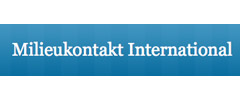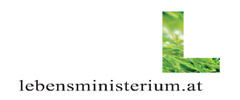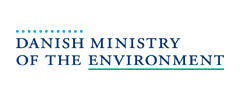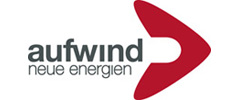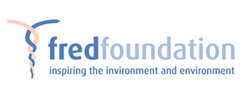More than 100 participants at Bulgarian Waste-Water Conference
WECF’s Bulgarian partners organize three day training event on “Modern Environmental Infrastructure Suitable for Rural Areas“
31.01.2006 |Bistra Mihaylova
- Developing public participation in the local decision making processes
- Children in houses without sewers more often ill with respiratory and eye diseases
January 12-14th 2005, Varna
By: Bistra Mihaylova , WECF. Download the report as a Word.doc.
From 12 to14 January, 2006, 107 local citizens, scientists and local authorities took part in the Training conference on waste and waste-water in Varna, Bulgaria. This conference is part of the WECF project “Sustainable water and waste management in the rural areas in Bulgaria”, financed by the Dutch Ministry of Foreign affairs ‘MATRA’ programme for democracy building. The training was organised by the Institute for Ecological Modernisation, WECF’s partner in implementation of the project in Bulgaria. Other partners in the project are the Stara-Zagora based Bulgarian partner Earth Forever Foundation, and the Dutch Partners WASTE and IRC.
The aim of the training conference was to mobilize local citizens and authorities in working together to improve the environmental and health situation in the village of Topoli. Topoli is a semi-urban village with 3000 in habitants, and 1 of 5 villages within the Varna municipality.

Workshop on pilot projects in water and sanitation
The citizens and authorities are motivated to work together constructively, as the project provides a budget of Euros 17,000 per village with which in a concerted effort, the citizens and authorities can implement demonstration projects. The criteria for these demonstration projects is that they are decided on in a democratic manner, that they respond to a real need, that they are innovative, that they can be replicated with local resources, and finally, that they address the problems with water protection, waste- and storm-water, sanitation and solid-waste.
The training conference was officially opened by :
- Lyuidmil Ikonomov –Executive Director of Institute for Ecological Modernisation, Varna;
- Annemarie Spapens , First Secretary, The Royal Netherlands Embassy;
- Mr Bonev on behalf of Varna Municipality;
- Mr Nikolov representative from the Basin Directorate in Varna;
- Dorine van der Keur , Director, Women in Europe for a Common Future (WECF);

Margriet Samwel, WECF water expert , shows exapmles of ecological sanitation projects in Ukraine and Romania in front the audience
During day 1, Maria Ilieva from IEM gave a presentation on results and findings of the socio –economic, gender and health surveys that were carried out in Topoli during the first 12 months of the project. Main problems found in Topoli village are:
- Overflowing soakaways in the parts of the village without centralized sewage system, especially in spring and summer time when the rain water additionally fills the soakaways;
- The nitrate-polluted fountains in the centre of the village, so that their water can no longer be recommended for drinking, and periodically one or two of them are closed by the hygienic inspection in Varna;
- Three illegal solid waste landfills around the village where people throw their construction waste together with the waste from their gardens and the manure from the animals;
- The health situation of the children who live in houses without sewage system is much worse than that of children who live in houses with centralized sewer. Children from no-sewage houses suffer in particular more from respiratory diseases and eye-diseases. Moulds in the house-walls are the suspected source. This information was the result of the Health survey carried out for IEM by the Regional Inspectorate for Protection and Control of Public Health together with the Medical University.

Lydmil Ikonomov, Director of IEM, and partner of WECF responsible for impelnetation of the project in the village of Topoli
Another objective was to present appropriate technologies and solutions for the problems of the villages. Presentation were given by Margriet Samwel (WECF), Franziska Meinzinger (consultant from the Technical University Hamburg-Harburg), Lyudmil Ikonomov (Director of IEM), Doncho Angelov (IEM), Atanas Tanev (IEM), Rene van Lieshout (IRC Netherlands), Anne Scheinberg (WASTE Netherlands).
The technologies presented showed lessons learned with similar sewage and waste problems in other countries, and how they could possibly provide a solution for the village of Topoli :
- Experience with rainwater harvesting in Blagoevgrad, Bulgaria and in Gujarat, India
- Elements of storm-water management, examples for Australia and Germany
- Overview of the EU legislation and standards in the Netherlands and Europe on rainwater harvesting,
- Legislation and standards for decentralized waste water treatment and ecological sanitation (dry urine diverting toilets), in Europe
- Legislation and standards related to solid waste management in general and composting specifically, in Europe and Bulgaria
- Small – bore sewage, how does it work, what costs does it save, examples from around the world
- Examples of ecological sanitation projects in Western Europe and Australia
- Examples of ecological sanitation projects in Romania and Ukraine
- Overview of the situation in Bulgaria and the Bulgarian legislation on waste water and sanitation
- Water protection and drinking water chemical tests-results from Topoli
- Sanitary conditions and results from the health survey in Topoli
- Technology of composting, and small scale composting, household composting

Maria Ilieva (IEM) showing the results of the findings in Topoli during the first phase of the Project
The Mayor of the village Mrs Ganka Dimitrova was participating actively in all workshops and encouraging the participants from Topoli to give their ideas, input and to think about possible pilot projects for solution of the problems in Topoli.
During the three days of workshops the people from Topoli, the representatives of the authorities and the experts were discussing the best solutions about the problems of the village.
A lot of attention was paid on the rainwater harvesting. Lyudmil Ikonomov from IEM presented previous experience with rainwater harvesting in a school in Blagoevgrad region and gave some parameters of a possible rain water collection and utilization system in the school in Topoli. During the workshop the people discussed the costs and benefits of this suggestion. It was realised that at this point too little is known about rainfall patterns (only average data for the region, not for the village exsits) and that it is not possible to predict how much the rainfall there will be during the year. A main question mark still is the costs for installing the parallel rainwater system, and the payback period for this investment.
Much discussion focussed on the 3 illegal landfills which at the moment consists of construction waste, garden waste, animal manure, and any other waste. IEM presented experience of cleaning up such illegal landfills and constructing legal ones two villages in Bulgaria.
Great interest was shown after the presentation of the small bore sewage made by IRC, the people from the village discovered that this might be a solution of the overflowing soak-aways for the people who doesn’t have sewer.
People showed as well great interest in household composting, storm water management, Ecosan and EU legislation.
The participants of the training conference included;
- 7 Representatives of the Universities –Varna;
- 10 Basin Directorates representatives -Danube District,Black Sea District
- 2 Participants from the Institute of oceanology, Bulgarian Academy of Science
- 8 Representatives of Varna Municipality
- 10 Participants from Regional Municipalities
- 4 Representatives of the Bulgarian National Institute of Meteorology and Hydrology, Varna
- 2 Participants Balkan Educational Centre for Ecology and Environment Protection
- 18 Citizens from Topoli
- 5 Representatives Water supply and sewerage from the region
- 5 Representatives of the Regional Inspectorate for protection and control of public health
- 2 National and 3 local Media
- 1 Representative from the Ministry of environment and waters
- 5 Representatives of consultancy companies
The conclusion of the conference was that there are several possible pilot projects which can be developed with the money reserved for Topoli village, e.g.:
1. Advocacy for finalizing the construction of the sewer in Topoli (1/3 missing)
2. Rainwater harvesting from the roof in the school in the village and using the water for irrigation of the large school garden
3. Small bore sewage for the streets without sewer and for the houses which are near the three fountains
4. EcoSan toilets for houses on agricultural land outside the village
5. Household composting for houses with gardens in Topoli village
6. Construction of a new public composting site near the village
The next step is that the villagers – among themselves – take a well informed decision on their priorities for potential pilot projects. This decision can be based on information and ideas that were shared on the conference.
For more information about the project and it’s partners see the project page.















